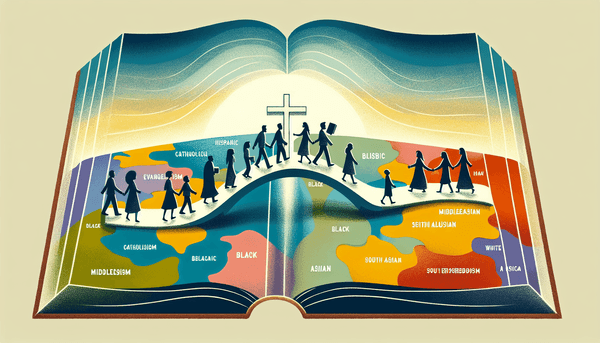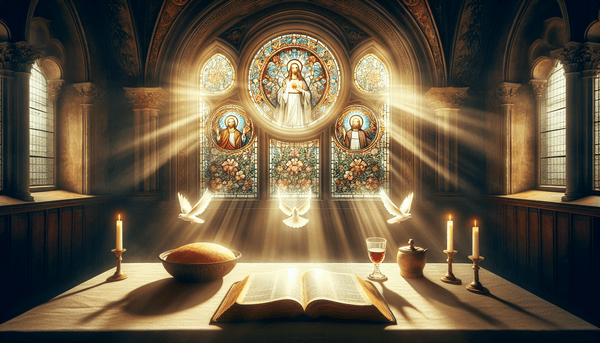The Biblical Mandate for Love and Respect
At the heart of Christian teaching lies a powerful directive known as the Golden Rule: 'So in everything, do to others what you would have them do to you...' (Matthew 7:12). This principle transcends all cultural and religious boundaries, calling believers to a life of empathy and kindness. Furthermore, Jesus summarized the Law and the Prophets with the command to love God with all our heart and to love our neighbor as ourselves (Matthew 22:37-39). The Apostle Paul also urged the Corinthians to be 'perfectly united in mind and thought' (1 Corinthians 1:10), highlighting the importance of unity among believers. The Bible depicts the church as one body with many members (Romans 12:4-5), each with different functions but all equally valuable. Overcoming prejudice is a biblical mandate; showing favoritism is a sin (James 2:9), reminding us that our actions and attitudes towards others should reflect God's unconditional love.
Exploring Evangelicalism
Evangelicalism, with its emphasis on the Gospel, claims that it's the power of God for salvation to everyone who believes (Romans 1:16). The movement encourages a personal relationship with Jesus, advocating the need to be 'born again' (John 3:3). Evangelicals hold the Scriptures in high regard, considering them to be God-breathed and useful for teaching, rebuking, correcting, and training in righteousness (2 Timothy 3:16). The Great Commission, to go and make disciples of all nations (Matthew 28:19-20), fuels the evangelical passion for mission and evangelism. Moreover, the concept of the priesthood of all believers (1 Peter 2:9) democratizes the ability to minister and witness, insisting that every Christian has direct access to God without the need for an ecclesiastical intermediary.
The Traditions of Orthodoxy
Orthodoxy cherishes a continuity with the earliest Christian traditions and places a strong emphasis on liturgical worship, as Paul encouraged the Thessalonians to 'stand firm and hold to the traditions' they were taught (2 Thessalonians 2:15). Icons play a significant role, reminiscent of the Old Testament use of symbolism in worship, such as the cherubim on the Ark of the Covenant (Exodus 25:18-22). Orthodoxy also embraces the mystery of faith, acknowledging that the mystery of godliness is great (1 Timothy 3:16). Ephesians 4:5 speaks of one Lord, one faith, one baptism, highlighting the Orthodox value of unity in faith and practice. The divine liturgy is a central act of worship, as believers are called to offer God acceptable worship with reverence and awe (Hebrews 12:28-29).
Recognizing Our Common Ground
Despite the distinct practices and theological emphases of different Christian denominations, they all share a common foundation in Christ. Jesus Himself stated, 'I am the way, the truth, and the life' (John 14:6), a truth universally acknowledged among Christians. The doctrine of the Trinity is another unifying belief, as Jesus commanded His disciples to baptize in the 'name of the Father and of the Son and of the Holy Spirit' (Matthew 28:19). All denominations hold the Scriptures in high regard, and Jesus' use of the Scriptures to reveal Himself (Luke 24:27) underscores their importance. The pursuit of holiness and good works is a common calling, for we are 'created in Christ Jesus to do good works' (Ephesians 2:10). Lastly, the hope in the resurrection and the promise of eternal life bind believers together, as Paul speaks of Christ's resurrection as the firstfruits of those who have fallen asleep (1 Corinthians 15:20-22).






